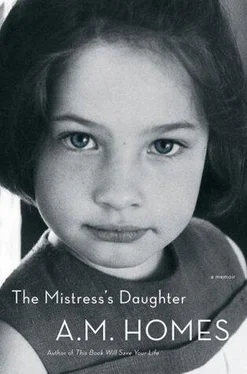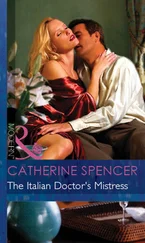“We went up to the old farm,” I said very loudly.
“You did? And you were able to find it?”
“Yes.”
The weekend before, my cousin (also a writer) and I had driven up and down the hills of North Adams on an impromptu pilgrimage to find the farm where my grandmother grew up. The dirt driveway had long ago dissolved; the only way in was by foot. We climbed quickly, ascending into the mythology of the farm.
The original buildings remained, crumbling, collapsed, but still identifiable. I conjured images of my grandmother as a child, one of nine born to Lithuanian immigrants at the turn of the century on this Massachusetts dairy farm. I imagined her walking down the dirt road to a one-room schoolhouse, picking wild blueberries, helping my great-grandfather milk the cows and tend the chickens. I remembered her telling me the Mohawk Trail was just out the back door, and in my mind she was outside playing a real-life version of cowboys and Indians, substituting farmers for cowboys, cows and plows for horses and guns.
My cousin went on an ersatz archaeological dig, using a knife to poke in the dirt near one of the buildings. After a few minutes, he pulled out an old bottle.
“This must mean something,” he said.
I nodded. We each took a couple of slate shingles from the crumbling roof and made our way back to the car.
“Tell me about the farm. How was it?” she asked, as if half expecting there was still someone there leading the cows out to pasture in the morning and back home again at night.
“Interesting.” I told her about the landscape. She closed her eyes. I told her about the rolling hills, the tall trees, Mount Greylock in the distance.
“Just as I remembered it,” she said.
She looked at her table. I imagined this table echoing something, some other great long farm table in my great-grandmother’s country kitchen. I see my grandmother’s nine brothers and sisters as children underfoot in their mother’s kitchen. I see my great-uncles as teenagers in the summer selling buckets of water to overheated cars on the Mohawk Trail. I feel their grief when their fourteen-year-old sister, Helen, dies of diphtheria in 1912. I see their brother Maurice staying in North Adams — becoming the town doctor, delivering over twelve hundred babies.
My grandmother rubbed her finger along the grain of the wood.
Again, her hand circled the wood. “Tell me about you,” my grandmother said.
“I’m fine, I’ve been working hard, I’ve been thinking about buying a little house out on Long Island, a cabin where I can go and write.”
She nodded. “It’s important to have a house of your own,” she said.
“Tell me about you,” I said back to her.
“I’ve got nothing to tell,” she said. “I’m bored.”
She had worked her entire life — full-time until she was eighty-six. In 1918, two years before women won the right to vote, she came to Washington by herself, got a job in the War Department, and soon brought her brothers and sisters down from the farm. In 1922 she met my grandfather, the Romanian-French hatmaker, during a summer visit home when he happened to be working at his uncle’s hat shop in nearby Pittsfield, Massachusetts. In the mid-1920s my grandfather sent for his younger brothers Julian and Maurice, hoping they would stay in America. The boys came for a summer but didn’t like it — they couldn’t get girlfriends because they didn’t speak English. They returned to Paris and in the 1940s were deported from Paris to concentration camps — Julian to Drancy and then Auschwitz, and Maurice to Auschwitz. Neither survived.
Later, in Washington, D.C., my grandparents started a successful wine importing company, and when she was seventy-eight, Jewel Rosenberg became a founding director of the first bank in the United States organized by women for women.
Whatever I know about how to live my life, I learned from her. When I graduated from college and wanted to become a writer, she lent me the money to buy an IBM Selectric typewriter. I dutifully paid her back $50 a month, and when the debt was repaid, she wrote me a check for the entire amount. “I wanted you to know what it means to work for something.”
Back at the table, she sighed. “I don’t know what to do with myself. I don’t feel useful anymore.”
“It’s your turn to rest and let others do things for you.”
“I’m not a rester, I’m a worker.”
“Let’s go for a ride,” I said, getting up from the table. We drove to a local farm, the place where my mother took me apple picking and pumpkin hunting as a child. I drove up a rutted road toward the berry patch.
“Where are we? This is beautiful, it reminds me of North Adams.”
I parked beside a row of blueberry bushes and opened her door.
She made her way to the bushes and started grabbing at the berries and popping them into her mouth, her ninety-eight-year-old fingers suddenly nimble. Sweeping her hair back, she looked up at the sky and moved down the row, picking rapidly. She was a girl again, filling the basket with ripe, warm berries. “This is exactly how it used to be.”
We drove home with the basket of berries on her lap. She squeezed my leg. “Buy your little house,” she said, and I did.
I called her from the little house on Long Island. I stood in the small yard and told her what I was planting: rosebushes, tulip bulbs, seeds for carrots, beets, and squash. I had turned over a small square of land at the far end of the yard and began calling it “the field.” I told her about tilling the field, tending my crop — the enormous satisfaction in this work, in being away from the city, my hands deep in the dirt.
She turned ninety-nine. “When are you coming home?” she asked several times in each conversation. “Soon,” I told her. “Soon, I am coming home.”
And then she was gone, the only person I’ve known to die unexpectedly at ninety-nine. I hurried back to Washington. I went to her house. I moved from room to room. I sat at the table, waiting. I had the feeling that she too felt she left too soon. She seemed to still be there, hovering, floating, packing.
I stayed for a while, just sitting, comforting myself with the echoes and objects that were like symbols, vessels of history.
At the end of the summer I pulled my carrots out of the ground, as proud of them as I was of any story or novel I’d written. She was the person I would most want to share them with; she was the one who would understand when I held up the green grassy ends and proudly said, Look what I made.
I see now that I am a product of each of my family narratives — some more than others. But in the end it is all four threads that twist and rub against one another, the fusion and friction combining to make me who and what I am. And not only am I a product of these four narratives — I am also influenced by another narrative; the story of what it is to be the adopted one, the chosen one, the outsider brought in. In the living room bookcase of my parents’ house there was a two-volume slip-cased set called The Adopted Family . One of the volumes was a book to be read to the adopted child, and the other was a book for the parents. I would often sit with that book not sure entirely what it was about but sure that it was of great import, that in some way it was quite literally about me. I felt like a doll whose package comes along with a book.
As a child, I devoured biographies — in particular a set of biographies for children called Childhood of Famous Americans . I read each of them again and again; two in particular stuck in my mind: Eleanor Roosevelt and Babe Ruth. And at some point they conflated into a character of my own making, Eleanor Babe, a sort of early superhero — not only did she start organizations like Unicef, she had a mean curve ball. Thinking back on those two books, it’s clear why they lodged in my thoughts; both Eleanor Roosevelt and Babe Ruth were sent away by their families — Eleanor to live in London with aunts who had no understanding of her, and Babe to a children’s home in Baltimore after his mother died. It was their outsider experience, their loneliness, that I identified with. They were invisible adoption heroes — not only had they survived but they succeeded.
Читать дальше












